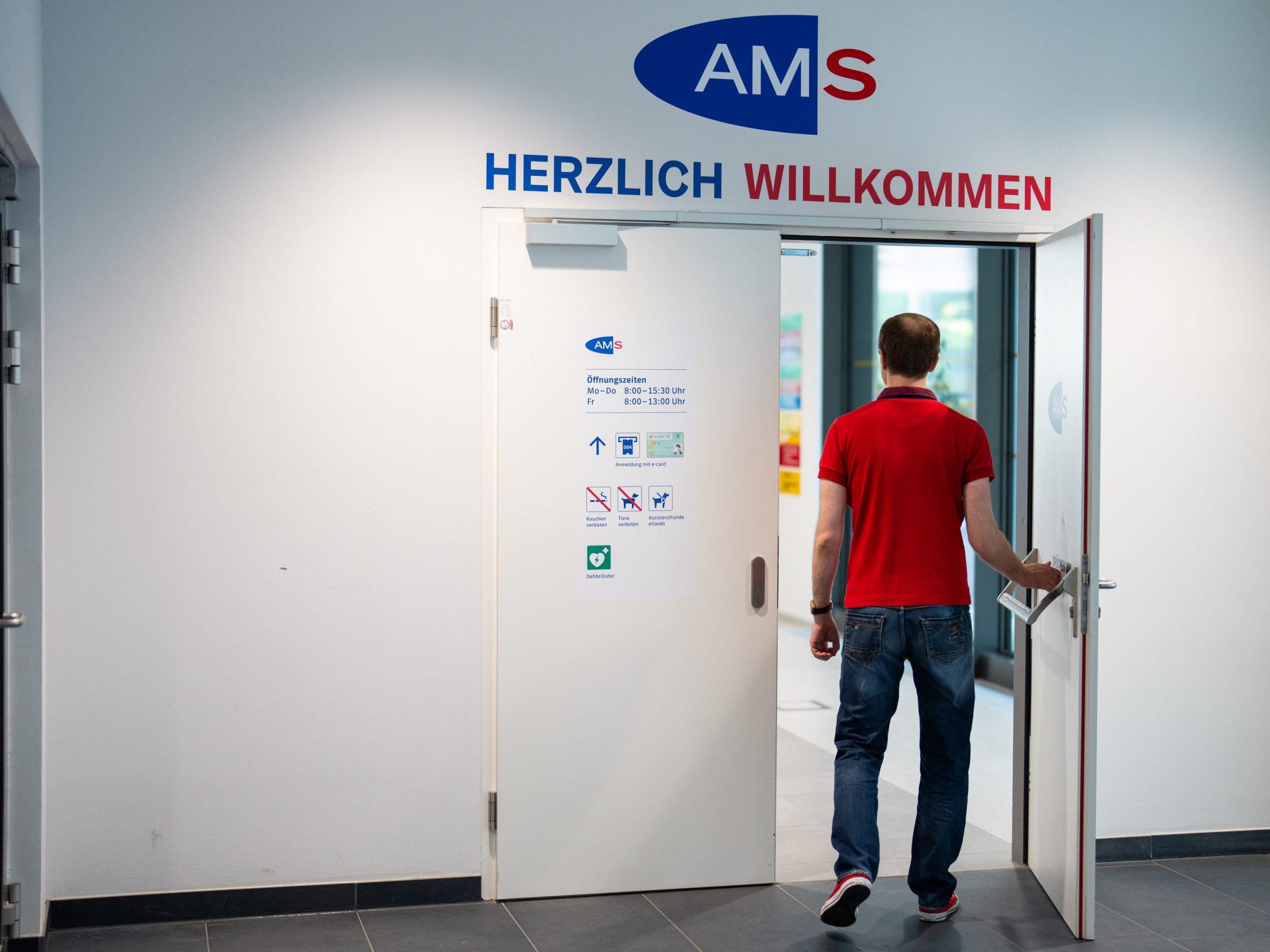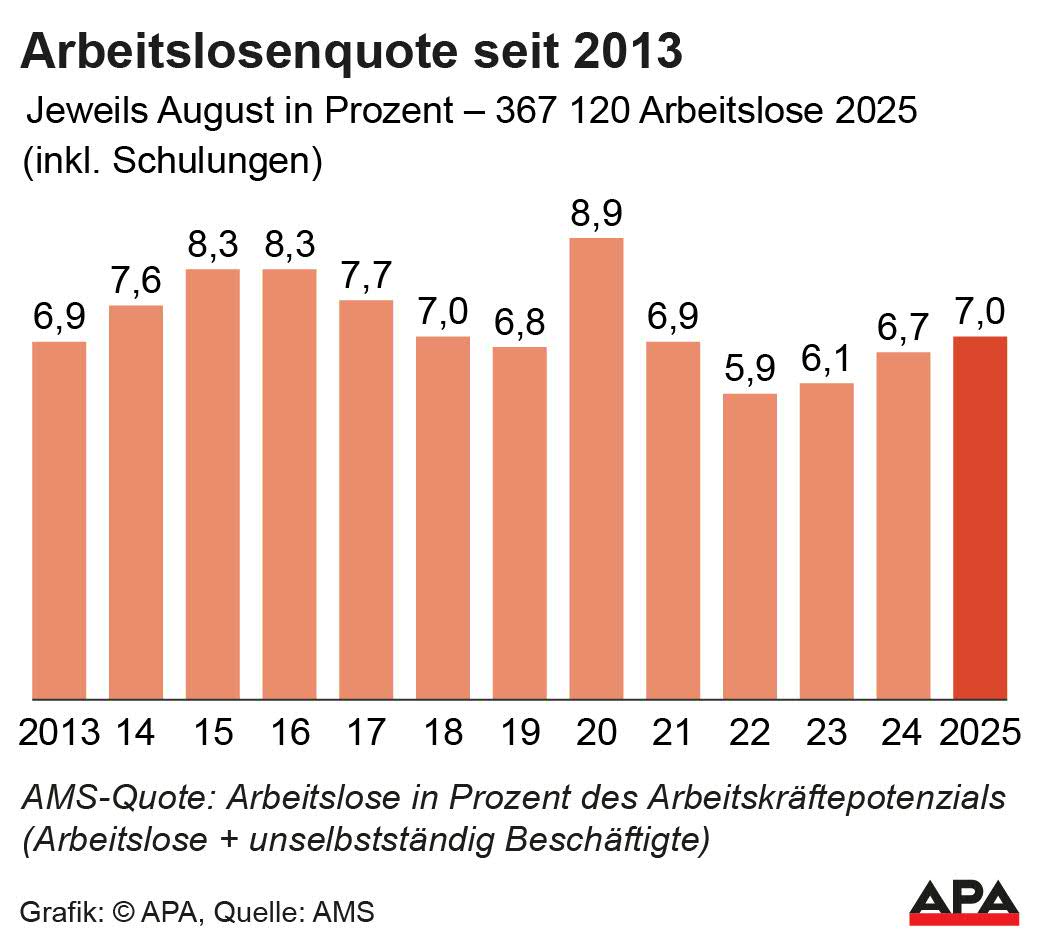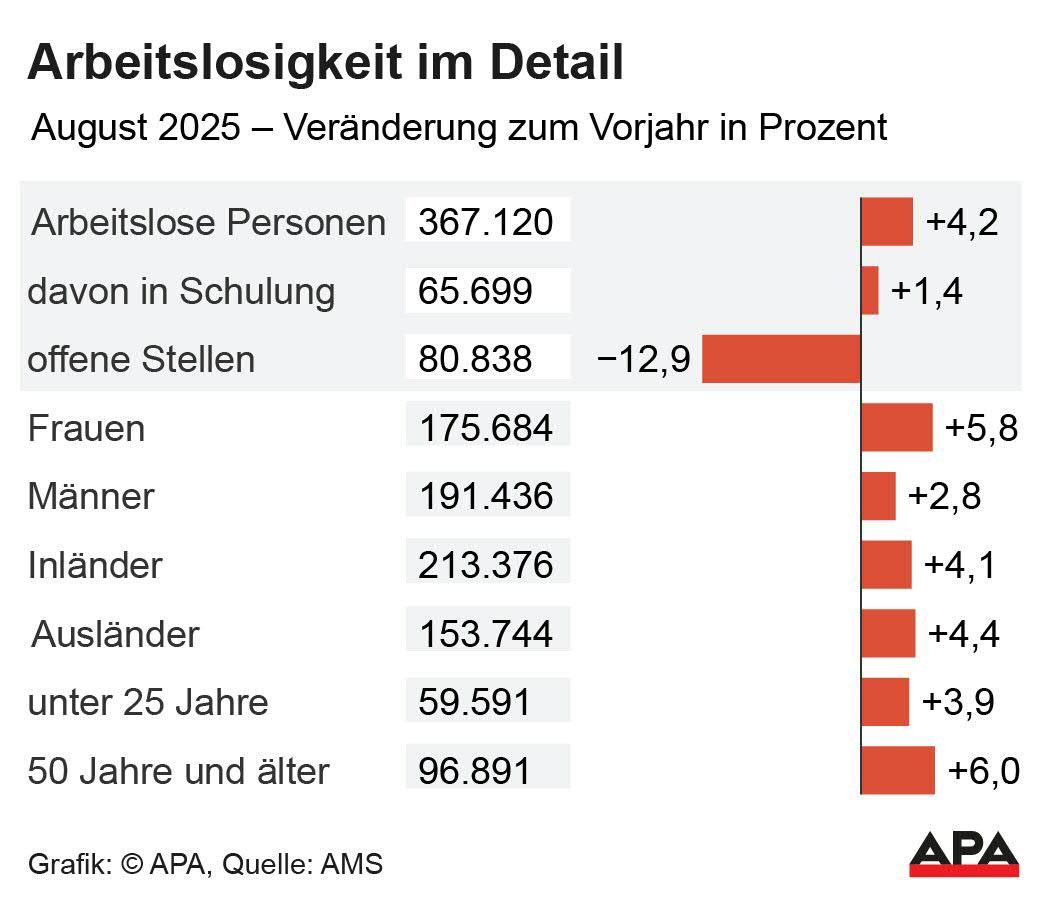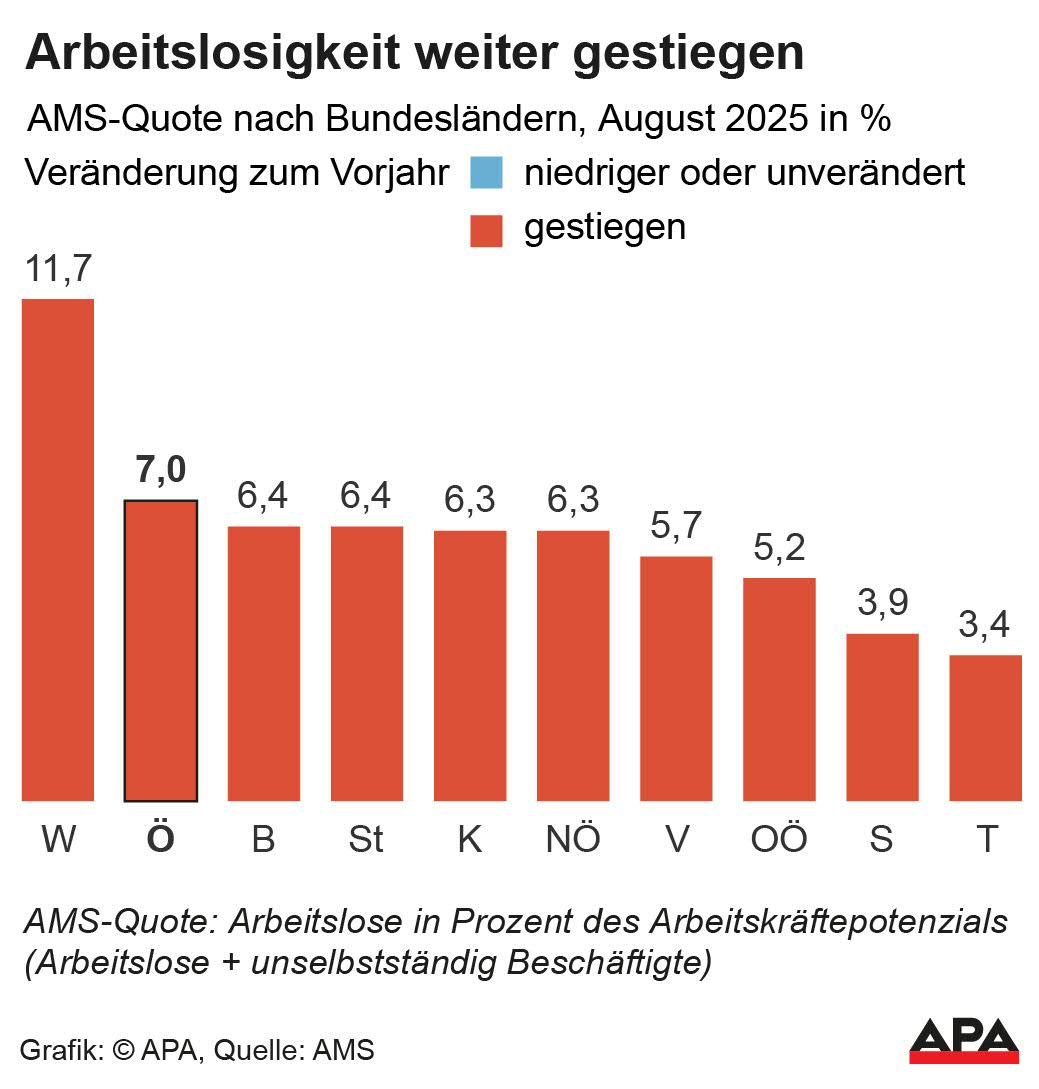Unemployment Rose by 4.2 Percent in August

The bleak economic situation continues to weigh on the labor market. At the end of August, a total of 367,120 people were registered with the Public Employment Service (AMS), of which 301,421 were unemployed and 65,699 were in training programs. Year-on-year, the number of unemployed and training participants increased by 4.2 percent or 14,864. The unemployment rate was 7.0 percent (up 0.3 percentage points year-on-year).

"The economic conditions do not yet indicate a trend reversal in the labor market," said AMS board member Petra Draxl according to a press release on Monday. Overall, the bottom of the labor market development has not yet been reached. For this year, the Economic Research Institute (Wifo) forecasts stagnation in economic performance, after two years of recession.
"In view of tight budgets, coordinated employment policy initiatives are needed to strengthen overall economic demand and secure employment growth," said Social Minister Korinna Schumann (SPÖ) according to a press release on Monday. Particularly important, therefore, is the support of long-term unemployed.
Decrease in Job Vacancies
The economic downturn is also affecting job advertisements. The number of immediately available job vacancies reported by companies to the AMS fell by 12.9 percent in August to 80,838. Similarly, the number of immediately available apprenticeships decreased by 13.6 percent year-on-year to 7,462. This meant there were 3,743 more apprenticeship seekers than available apprenticeships in August.
"It is becoming increasingly difficult for young people to find a position in the primary apprenticeship market," says AMS Vienna head Winfried Göschl. Alternatively, the AMS offers a wide range of inter-company apprenticeship training.
Higher Youth Unemployment
According to the AMS, those particularly affected by unemployment were people over 50 years old (+6.0 percent to 96,891). Youth unemployment (under 25 years) increased by 3.9 percent in August. The number of unemployed or women in training increased by 5.8 percent to 175,684, while unemployment including training participants among men and people with alternative gender increased by 2.8 percent to 191,436. There were also significant increases among people with academic education (+11.7 percent to 40,197) and people with disabilities (+12.4 percent to 16,856). The number of long-term unemployed rose by 10.8 percent to around 93,700.

According to AMS, the states most affected were those with industries and tourism, such as Salzburg (+7.3 percent), Tyrol (+6.4 percent), Upper Austria (+6.3 percent), and Styria (+5.1 percent). In Vienna, the number of unemployed and training participants rose by 3.5 percent to 154,591.

More Unemployment in Trade
In a sector comparison, trade (+6.9 percent) and industry (+6.7 percent) were particularly affected by the rise in unemployment. They were followed by transport and storage (+5.9 percent) and accommodation and gastronomy (+4.2 percent). A decrease of 1.4 percent in construction could be a "first silver lining on the horizon," according to AMS. The health and social sector (excluding other social services) also recorded a significant increase of +12.3 percent.
Call for Reduction of Bureaucracy
Against this background, the Federation of Austrian Industries (IV) called for a reduction of bureaucracy in the labor market: "Constant new regulations" are counterproductive, said IV Secretary General Christoph Neumayer in a statement on Monday, referring, among other things, to the heat protection regulation planned for 2026. Additionally, more incentives for full-time work are needed.
The Chamber of Labor (AK) pointed to the automotive supply industry. The sector is suffering from the impact of US tariffs and a lower innovation capacity in Germany. AK President Renate Anderl called for a "realignment of mobility in Austria and the EU" in a statement, mentioning the expansion of public transport, the implementation of the ÖBB expansion strategy "Target Network 2040," and labor market measures for employees in the automotive industry. The union (ÖGB) criticized short-term unemployment, with which companies "park their employees at AMS during weak times."
FPÖ Sees "Number of Failure"
For FPÖ social spokesperson Dagmar Belakowitsch, the 4.2 percent increase in unemployment is "simply a number of failure," and she sharply criticized the government of ÖVP, SPÖ, and NEOS.
(APA/Red)
This article has been automatically translated, read the original article here.





